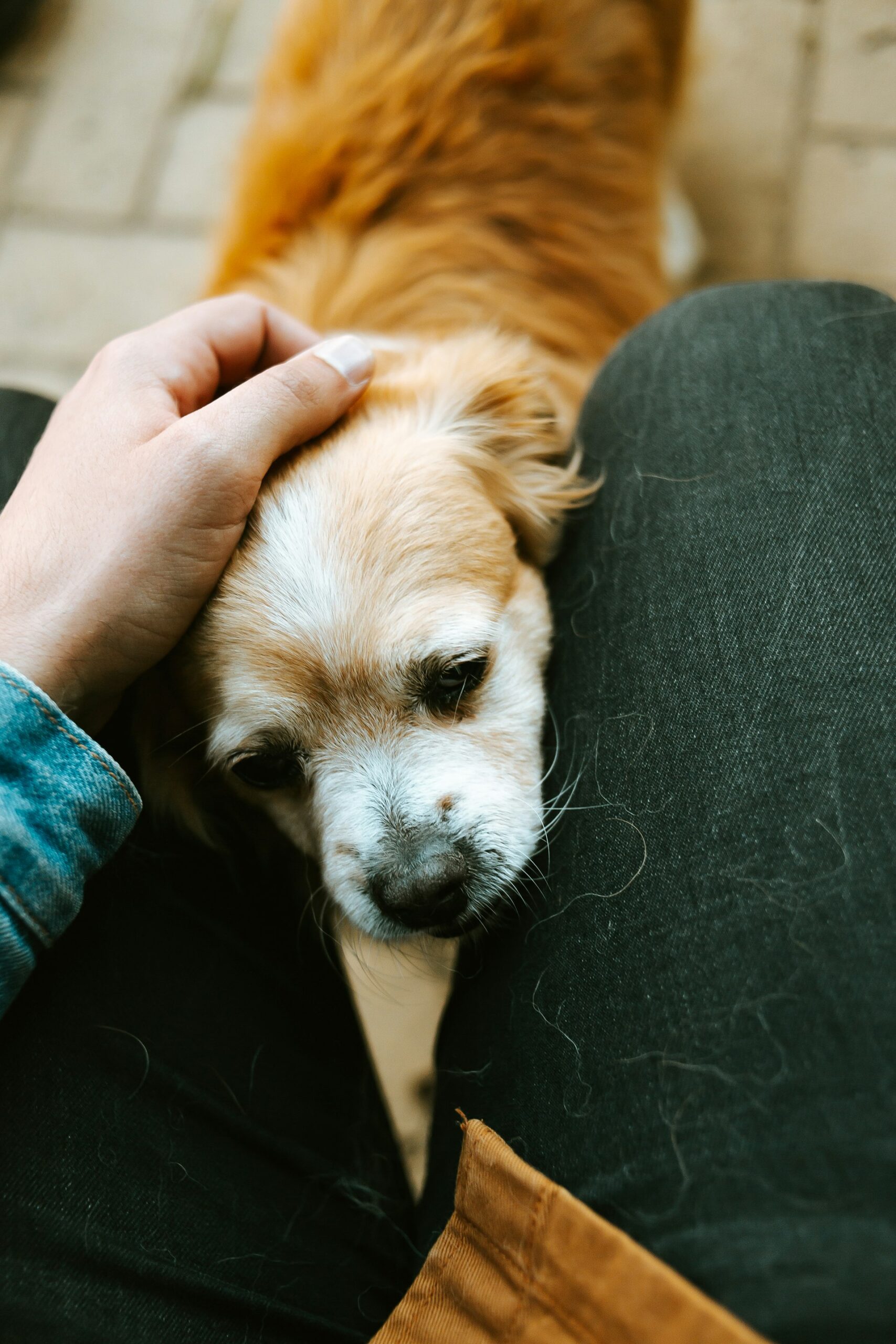Comprehensive Support and Counseling for Pet Loss Grief: Finding Healing and Guidance


Photo by A. C. on Unsplash
Understanding Pet Loss Grief
Losing a cherished animal companion can be as profound and overwhelming as the loss of a close family member. The grief that follows is deeply personal, often accompanied by sadness, guilt, loneliness, or even anger. It is important to recognize that these emotions are a natural part of the healing process. For many, acknowledging the depth of this loss is the first step towards recovery. Grief after pet loss can manifest as physical symptoms, emotional distress, or changes in daily routines. Understanding that you are not alone and that support is available can make a significant difference in your journey toward healing. [1]

Photo by Alexandre Silva on Unsplash
Types of Pet Loss Grief Support and Counseling
There is a wide range of grief support and counseling options available for pet owners. These include:
- Professional Grief Counselors: Certified counselors specializing in pet bereavement can provide individualized support, either in person or virtually. They offer a compassionate, non-judgmental environment where you can express your feelings and begin to heal. [2]
- Support Groups: Group sessions, both in-person and online, allow you to connect with others who have experienced similar loss. Sharing your story and hearing from others can help normalize your feelings and reduce isolation. [3]
- Hotlines and Helplines: Some organizations provide telephone support for immediate assistance, especially during moments of acute grief. [4]
- Educational Resources: Books, articles, and videos can offer insight into the grieving process and suggest coping strategies. [1]
The type of support that works best for you may depend on your personality, circumstances, and the intensity of your feelings. Many people find that a combination of counseling and peer support is most effective.
How to Find Pet Loss Grief Counseling and Support
Accessing grief support is more convenient than ever. Here’s how you can start:
- Search for Local Pet Loss Counselors: Platforms like Petworks list certified pet loss grief counselors. You can review their credentials, read client testimonials, and choose between in-person or virtual services. [2]
- Join a Support Group: Many veterinary hospitals and animal organizations offer group meetings. For example, the Pinellas Animal Foundation runs no-cost telephone and group support sessions. You can register by calling their information line; details are often available through your veterinarian or local animal care center. [4]
- Participate in Online Support Communities: Several reputable organizations host virtual groups and forums where you can connect with others. Lap of Love, for example, provides free, coach-led virtual support sessions tailored to different aspects of grief. [3]
- Utilize Helplines: Nonprofits such as the Hillsborough Animal Health Foundation offer phone counseling by appointment. This can be helpful if you prefer one-on-one support or are seeking immediate guidance. Call centers may also refer you to specialized counselors. [5]
- Consult Your Veterinarian: Veterinarians often maintain a list of local counselors and support groups. They can provide recommendations tailored to your needs. [6]
If you are comfortable searching online, use terms like “pet loss grief support,” “pet bereavement counseling,” or “animal companion loss support group” to find local or virtual services.
What to Expect from Pet Loss Grief Counseling
Pet loss grief counseling provides a structured, empathetic environment to process your emotions. A typical session may involve:
- Discussing your relationship with your pet and the circumstances of the loss
- Exploring emotions such as guilt, sadness, or anger
- Developing healthy coping strategies, such as journaling, art therapy, or mindfulness
- Planning ways to honor your pet’s memory, such as creating a tribute or participating in a memorial event
Group sessions encourage sharing experiences, while individual counseling can be tailored to your specific circumstances. Professional counselors are trained to recognize complicated or prolonged grief and may recommend additional mental health support if needed. Many services are confidential and can be accessed from home, making them convenient and private. [3]
Benefits of Seeking Support
Seeking help for pet loss grief has numerous advantages:
- Validation: Counseling affirms that your grief is real and worthy of attention, helping to break the stigma around mourning pets.
- Community: Group support reduces feelings of isolation. Hearing from others with similar experiences can be deeply comforting. [4]
- Healthy Coping: Professional guidance teaches practical strategies to navigate difficult emotions, reducing the risk of prolonged or complicated grief. [3]
- Personal Growth: Many find that the grieving process, while painful, can lead to increased empathy, resilience, and a renewed appreciation for the human-animal bond.
Some support programs are offered free of charge, while others may have fees. Always confirm costs and available options when contacting a service provider.
Alternative and Complementary Approaches
In addition to traditional counseling, several alternative options exist:
- Creative Expression: Writing letters to your pet, creating art, or compiling a photo album can be healing. Websites like Letters to Pushkin provide platforms for expressing your feelings through writing. [1]
- Memorialization: Many find comfort in holding a memorial service, planting a tree, or donating to an animal charity in their pet’s name.
- Education: Reading books or articles about pet loss can help normalize your feelings and suggest new ways to cope.
- Peer Forums: Online communities and social media groups provide ongoing support and a sense of belonging.
These methods can be used on their own or combined with professional counseling. If you feel overwhelmed, it’s important to seek support from a trained counselor or mental health professional.
Practical Steps to Access Pet Loss Grief Support
- Contact your veterinarian and ask for a list of recommended counselors or support groups. Many veterinary clinics maintain updated resources and can connect you with local or national organizations. [6]
- Call community organizations such as the Pinellas Animal Foundation or the Hillsborough Animal Health Foundation for information about upcoming group sessions or phone counseling. Phone numbers are typically found on their official websites or by searching their organization names online. [4] [5]
- Explore reputable online directories, such as Petworks, to find certified pet loss grief counselors who offer remote or in-person services. [2]
- Look for virtual support groups hosted by organizations like Lap of Love, which offers several free, coach-led sessions each week. [3]
- If you prefer to start with self-help resources, visit the Best Friends Animal Society website for a comprehensive list of articles, videos, and further reading. [1]
If you experience persistent sadness or difficulty functioning in daily life, consider seeking support from a mental health professional who is trained in grief counseling.
Potential Challenges and Solutions
Some individuals may encounter difficulties when seeking support. Common challenges include:
- Stigma: Some people may not understand the significance of pet loss. Remember that your grief is valid, and specialized counselors are trained to provide empathetic support.
- Accessibility: Not all areas have local support groups, but virtual options are widely available. If you lack internet access, telephone support lines are a practical alternative. [5]
- Financial Concerns: Free and low-cost support options exist, such as nonprofit groups or university-affiliated counseling programs. Always inquire about fees before committing to a service. [4]
By exploring multiple avenues and being open to different forms of support, you can find the approach that best matches your needs.
Key Takeaways
Grieving the loss of a pet is a deeply personal experience, but comprehensive support and counseling services are available to help you cope and heal. Whether you choose individual counseling, group support, or creative expression, taking the first step toward help is a sign of strength. Begin by reaching out to your veterinarian, exploring reputable online resources, and considering both traditional and alternative approaches. With the right support, it is possible to honor your companion’s memory and find comfort in shared experiences.
References
- Best Friends Animal Society (2024). Grieving the Loss of a Pet: Resources for Coping.
- Petworks (2024). Schedule a Certified Pet Loss Grief Counselor.
- Lap of Love (2024). Pet Loss Support Groups and Coaching.
- Paws and Claws Animal Medical Center (2024). Healing After Loss with Pet Grief Support in Dunedin.
- Hillsborough Animal Health Foundation (2024). Pet Loss and Grief Counseling.
- Lap of Love (2024). Pet Loss and Grief Resources.






